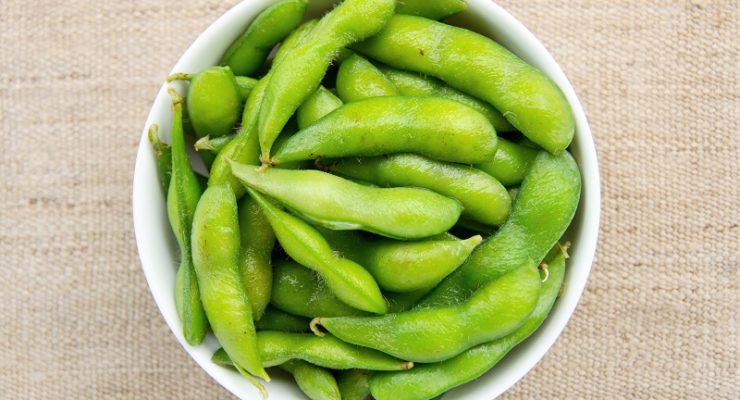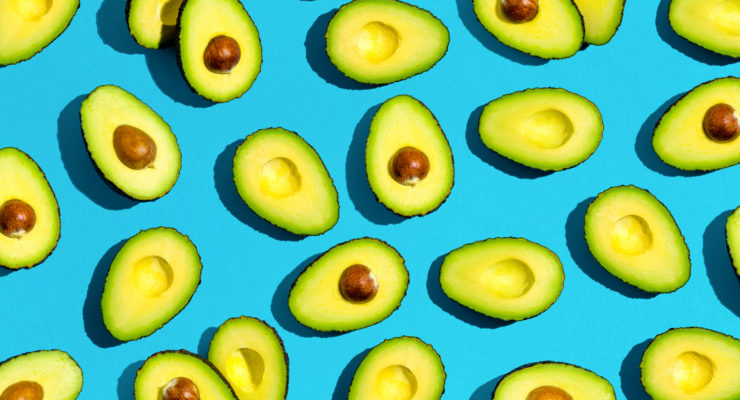Let’s start with the most immediate question. How do you pronounce acai? Say it “ah-sah-EE.” If you’ve never heard of acai or aren’t sure what it is, that’s no surprise since the South American fruit is a relatively new introduction to the U.S. food market. Acai has quickly achieved “superfood” status for many healthy eaters because of its potent nutritional content and versatility. Acai also has been hyped with unsubstantiated reports about its miraculous powers to cure diseases and aid in weight loss. While those claims remain unproven, we can say for sure that acai can give a boost of beneficial nutrients to your Flex meals and snacks.
Here’s what you need to know about this uncommon fruit:
Acai is a berry-like fruit that grows on palm trees in the Amazon rainforest, where the natives have been harvesting and eating it for centuries. The trees grow in the wild there. They’ve now been planted in Hawaii to meet the growing demand for the fruit, but they’re not adapted to growing in the continental U.S.
The fruit is similar in size and shape to blueberries. Acai berries have dark, purple skin with yellow pulp. Inside are large pits, like you find in olives. The pulp is juicy, and its flavor tends to be bland or faintly bitter. The fresh fruit is highly perishable, so it must be processed quickly or it becomes inedible.
In the 1980s and 90s, acai “bars” serving smoothie-like drinks and breakfast bowls became all the rage in Brazil’s cities, where the fruit was discovered by visiting Americans. Acai first became available in the U.S. in the 2000s as an ingredient used at juice bars to pump up the nutrient content of freshly made drinks. Now acai is also showing up in a wide range of food products sold in grocery stores.
Nutrition Highlights

Acai has been labeled as a “superfood” because it has a high concentration of vitamins, fiber, antioxidants, and essential fats. According to the United States Department of Agriculture (USDA), an ounce of acai puree gives you about 20 calories, 1.5 grams of carbohydrates, 1.5 grams of fiber and almost no sugar. It is also a rich plant source of omega-3 fatty acids, which help protect heart health.
The component of acai that has drawn the most attention from nutrition researchers is anthocyanin, a micronutrient with powerful effects on our health. It’s an antioxidant, which means it eliminates “free radical” cells in our bodies that are linked to a wide variety of ailments. Cherries, blueberries and red wine are high in anthocyanin. Consuming acai nearly tripled the blood levels of antioxidants in the subjects of a study published in the Journal of Agricultural Food Chemistry.
Health Powers

Among the indigenous people who eat acai as part of their traditional diet, the fruit has long enjoyed an almost mystical reputation as a cure-all for major and minor health problems. While many claims made about acai’s benefits have not been verified, scientists studying acai in the laboratory have reported that it has “anti-inflammatory activities in colon cancer cells and can be effective as natural colon cancer preventative,” according to a research paper in the Journal of Nutrition and Cancer.
Some online research has been touting acai’s ability to rapidly burn fat and spur dramatic weight loss. Be wary of any such statements. Instead, trust in the proven fact that real and lasting weight loss comes from eating appropriate portions of nutrient-dense foods—that is, your Nutrisystem plan. Acai can be a part of that, but it is not better for weight-loss than the many other healthy foods you’re eating.
Buyer’s Guide

Fresh acai is not found in the U.S., but the frozen pulp is now sold in many supermarkets. Acai juice is available alone and blended with other fruit juices. The fruit also is used as an ingredient in smoothies and other nutritional drinks, jellies and desserts. Before purchasing any of these products, check to see how much actual acai is included—sometimes it’s a very small component—and look at the sugar content to be sure you’re getting the nutrients in the fruit and not a lot of extra calories.
Acai tablets are sold online and in health-food stores. The powdered acai they’re made from may have some of the nutrients in the fruit, but it has none of the valuable fiber. Though, just taking capsules is never the best way to get the important weight loss benefits of eating fruits and vegetables.
Fresh Ideas

The two most popular ways to enjoy acai are in a smoothie or a bowl. You can include the frozen pulp with fresh berries and a banana, blended with a vanilla shake from Nutrisystem, to make a super-nutritious smoothie that gives you one PowerFuel and one SmartCarb. Here’s a simple recipe we love that can include acai in place of some portion of the other berries >
Smoothie bowls let you incorporate whole fruit and crunchy ingredients such as nuts or granola that don’t work in drinks. Before you build your bowl, blend acai pulp with non-fat yogurt or milk, then add more tasty ingredients to make a breakfast that will keep you fueled up all morning. We show you the ins and outs of making smoothie bowls here >
The post Superfood Saturday: All About Acai appeared first on The Leaf.
from The Leaf https://ift.tt/2AjAlhP



Post a Comment